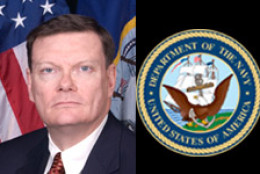Defense Department
-
The department is creating and trying out a universal curriculum for five foundational cyber roles in 2013. DISA is leading the effort and will add new roles next year as it refines the training. The agency says it is doing all it can to synchronize its training not just across DoD, but across the entire federal government in line with the National Initiative for Cybersecurity Education (NICE).
January 21, 2013 -
The Army has put an immediate freeze on civilian hiring and will begin terminating some temporary employees to reduce spending ahead of potential across-the-board budget cuts later this year. Army Chief of Staff Ray Odierno and Army Secretary John McHugh also directed Army commanders and supervisors to reduce base-operations support spending.
January 18, 2013 -
Robert Work, the Navy's undersecretary, will not serve a second term under President Obama.
January 18, 2013 -
Robert Work, the undersecretary of the Navy, says forget about the Reagan-era aspirations of a 600-ship fleet. Even with a smaller Navy, things are better than ever, he says, even if they're about to get worse due to smaller budgets and the threat of sequestration. "Yes, things might get worse. In fact, they probably will get worse. But this is the heyday of the U.S. Navy. And, if you're not excited, you ain't breathing," he said at the Surface Navy Association's annual symposium this week.
January 18, 2013 -
Michael Daniel, White house cybersecurity coordinator, talks about the new national strategy for information sharing and safeguarding. Brian Friel of Bloomberg Government examines what new regulations mean to the bottom line of some contractors. Charles Crum of the Postal Service's IG office discusses how USPS is embracing the Internet. Michael Nugent of the Defense Language and National Security Education Office talks about a new language program of feds going overseas.
January 17, 2013 -
The Department of the Navy is finding real dollar savings by moving to enterprise software licenses, managing mobile devices and services better and reducing the number of printers and the amount printed. Terry Halvorsen, the DoN CIO, said they are on track to meet the goal of cutting 25 percent of their IT budget in five years. January 17, 2013
January 17, 2013 -
The Air Force orders commanders to start cutbacks in advance of the next budget emergency.
January 16, 2013 -
Cindy Auten of the Telework Exchange talks about a new report on BYOD. Robert Khuzami explains why he is stepping down as the SEC's enforcement director. Peter Schroeder of The Hill newspapers discusses the looming debt-ceiling showdown.
January 16, 2013 -
At the end of fiscal year 2012, the Army's vehicle fleet numbered around 70,800 vehicles, which is about 12,000 less than it had in 2009. As it cuts back on the number of overall vehicles it has, the Army is also assembling a greener, more environmentally friendly fleet.
January 15, 2013 -
Kal Stein, president and CEO of EarthShare, talks about his company's new role as the manager of the Combined Federal Campaign of the National Capitol Area. Attorney John Mahoney weighs in on a recent ruling by the EEOC. Gen. Charles Wald of Deloitte talks about the ever-changing aerospace markets. Anne-Marie Fennell of GAO discusses Alaska Native Corporations. Ed Moscatelli discusses how the Army has eliminated 8,000 vehicles.
January 15, 2013 -
Martin Libicki of Rand Corp talks about managing cyber attacks. Kevin Brancato of Bloomberg Government discusses the Canada's decision to pass on the F-35. John Templeton of BlackMoney.com talks about being an African American in IT. Belva Martin of GAO discusses the new network communications strategy.
January 14, 2013 -
Air Force commanders will get orders in the next few days to plan for the possibility of fewer flying hours, providing fewer office supplies and working on fewer IT upgrades. Part of the service's planning will be to figure out how many civilian workers would need to be furloughed and for how long.
January 14, 2013 -
The semi-annual regulatory agenda highlights final and proposed changes to the federal acquisition and agency-specific acquisition regulations.
January 11, 2013 -
Muzaffar Chishti of the Migration Policy Institutes talks about the $18 billion the government is spending on immigration. Liz Gasster of the Business Roundtable weighs in on the need for comprehensive cybersecurity legislation. Ed Zurndorfer, register employee benefit consultant, discusses changes to the tax code.
January 11, 2013 -
Defense Deputy Secretary Ashton Carter told DoD components Thursday to draw up plans for full-year continuing resolution, plus sequestration. The approach to deal with across-the-board cuts would be to freeze civilian hiring, cut training, travel and conferences and reduce business technology expenditures.
January 11, 2013




